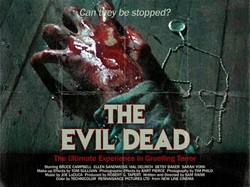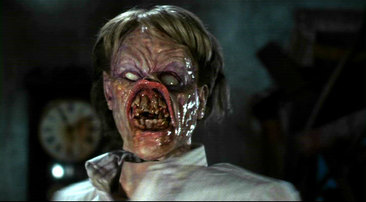
Sam Raimi is a film-maker with what some would call a varied career; personally, I would call it a chequered past. The name Raimi once stood tall as a true pioneer in the world of indie film-making in the same way that Linklater and Smith already do, as the three paved the way for a new movement of cinema in the eighties and early nineties. Linklater proved himself with Slacker (1991), Smith proved himself with Clerks (1994) and Raimi did it with The Evil Dead (1981). Following British controversies such as that of A Clockwork Orange upon its original release, The Evil Dead was classified by the Maggie Thatcher (rest in pieces) as a Video Nasty; joining the likes of I Spit on your Grave (1978) as a film that was deemed too graphic for public consumption, and was released straight to VHS, skipping the cinema entirely. This alone has given it a cult status among geeks the world over as to this day the gore is still brazen and bold, and still holds up as a horror classic.

For me, the sequels are where Raimi started to go wrong: adding upon the comedic elements of the first and mixing genres, a move that has often led to him being referred to as bold. I agree with the statement, but the fact of the matter is that it led to Evil Dead 2: Dead by Dawn (1987), and Army of Darkness (1992), films that any fan of the series would struggle to debate were better than the first, especially when discussing the latter. Much like The Godfather, the director peaked with the story's first outing but for reasons unbeknown to me the first sequel has a much bigger following. Evil Dead 2 has the same quirks as the original, and (like all of his films) Raimi is ever prevalent behind the camera, creating shots that must have, at times, been uncomfortable for himself and/or his actors. The problem is that it feels watered down as it chooses to lose its initial intensity on moments of slapstick and comedy and has fewer moments of awe inspiring gore. The mix here isn't even, nor is it clever, its odd and not necessarily in a good way. The moments of comedy from the original film tend to come from moments of gore so magnificent that it becomes funny, or moments of dialogue that are so brazen it has the same effect. I will contest that this might not have been the intention of the filmmakers, but when the material they produce is at its funniest when they aren't adding gore to a three stooges sketch, they should learn to leave comedy to the comedians.
The point here is that if you want see the best of what the series has to offer: rent the original, pay to see the remake.

 RSS Feed
RSS Feed
